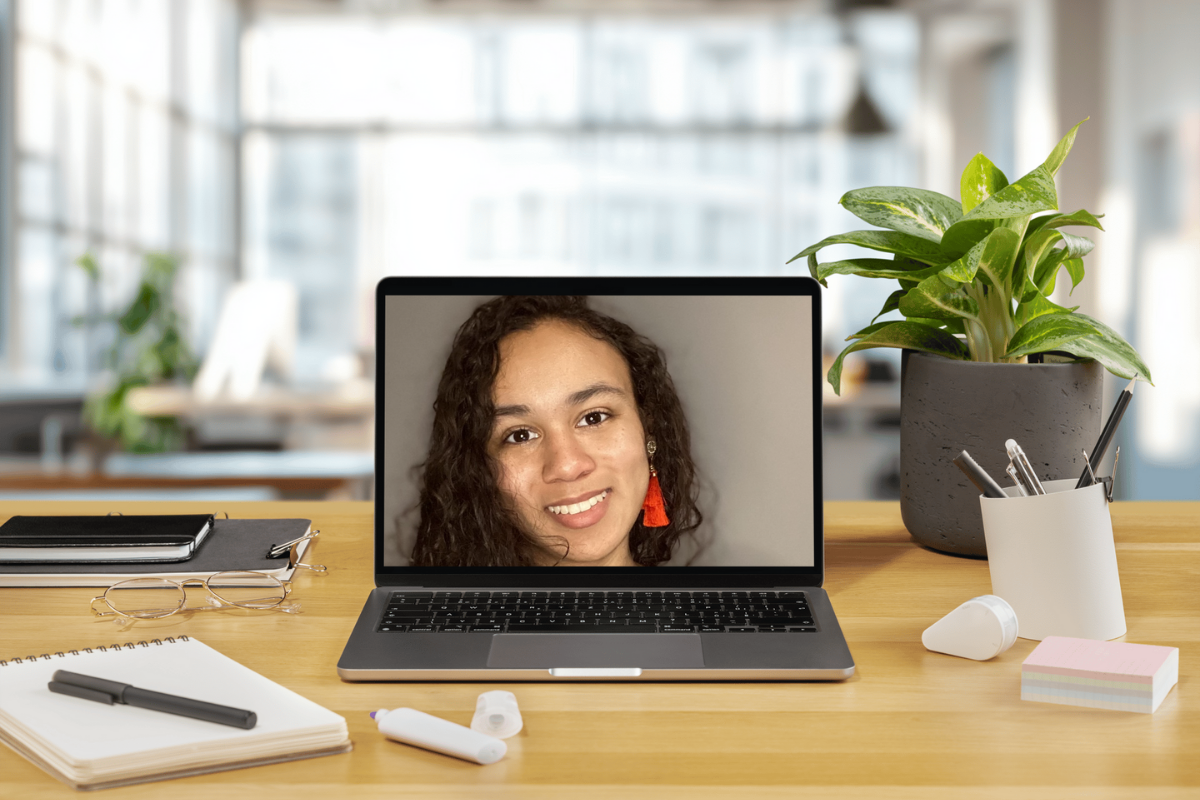Fox Williams has been an associate degree student in engineering, a trade school student in construction, a construction professional, an educator for underrepresented populations in the trades, and now an undergraduate student. Each of these education experiences have shown her the importance of making digital instruction relatable and relevant.
For example, she has encountered training and tools that didn’t account for differences between men’s and women’s body types, and she has been in the dark when instruction relied on cultural references she didn’t understand.
“Often I was the only woman,” Williams says of her education in engineering technology, and her training and on-the-job experience in construction.
She recalls an example of feeling excluded during her construction apprentice training: “In an effort to relate to the class, they would compare a part of a machine to something called a Heisman Trophy,” Williams says of the college football award. “I wouldn’t know. I don’t watch sports.”
Now she’s using this background to fuel her current endeavors, including her work as a fall 2025 Every Learner Everywhere® intern.
Sharing EBT practices
Williams holds an associate degree in electrical engineering technology and currently is a junior at Baruch College, part of the City University of New York (CUNY) system.
Additionally, Williams provides construction training through the nonprofit organization Nontraditional Employment for Women. As a math and electrical theory instructor, she works to present the inclusive instruction that she has come to recognize is so valuable.
Her background makes the Queens, N.Y., resident the perfect fit for the Every Learner internship, where Williams is assigned to work with Transform Learning. She is sharing information about practices she uses to make her training courses relatable and relevant, adding those descriptions to the examples of digitally enabled evidence-based teaching practices (DE-EBTs) available on the Transform Learning website.
Her work with Transform Learning also includes participation in its EBT community of practice.
Williams has always employed instructional techniques such as describing the practical importance of material she’s presenting and breaking classes into small groups for problem solving. Now she recognizes her efforts as encouraging a sense of belonging, using instructional transparency, and facilitating active learning. All of these practices are DE-EBTs.
“It’s nice to see everything I actually do put into words,” she says of the examples on the Transform Learning site.
Building instructional skills
Williams learned about the Every Learner internship opportunity as she conducted online research about digital tools she could use to improve her own instruction. That search led her to the Every Learner website, whose articles center on the organization’s support for innovation that improves learning outcomes for every student.
She also learned that this group, whose focus so closely matched her own, had internship opportunities.
“I had to apply for it,” Williams says. “I have a lot of ideas, but I don’t have the skills yet to execute them. I know Every Learner is going to give me those skills.”
Now she’s one of five fall 2025 interns who are adding their voices to the digital learning resources Every Learner provides. They’re learning about the use of artificial intelligence (AI) and discussing the approaches their institutions are taking to implement — or not implement — this technology in instruction and learning.
And Williams is using her role as an Every Learner intern to advocate for the value of both trade school instruction and higher education, encouraging examples of DE-EBTs from each type of postsecondary training.
Drawing on personal experience
As Williams helps build Transform Learning’s instructional example library and reviews Every Learner’s resources, she keeps in mind her experience as a student and instructor.
In both capacities, she’s used digital learning tools with varying degrees of success. She holds a professional certificate that she obtained through online training, for example.
“I say to myself, ‘What would younger me want in a college class in a college setting?’” Williams explains. “I think, ‘Okay, what did I like and not like about this online certificate, and what can I incorporate for my next online class?’”
She is also applying what she’s learned in class, on the job, and as an instructor to her current study of industrial/organizational (I/O) psychology, her major at Baruch College.
Williams’s goal is to one day develop and provide workplace training that features inclusivity in instruction and relevance to day-to-day responsibilities. She also hopes to build a construction education library for graduates of Nontraditional Employment for Women programs.
She already is using what she’s learned from her Every Learner internship to improve her own work and prepare for her future career. Williams cites an example of a reading the interns discussed that showed the value of using empathy and kindness when working with learners.
“It really shook me because people are coming from different backgrounds, and they’re shouldering different burdens,” Williams says. “I was always a stern teacher, because I was held to a standard of perfection. As I learned more about my students, I became aware I had privileges they did not have. Extending grace means acknowledging that my students are human, not perfect. Using grace in the classroom will foster an environment where students feel welcomed and are eager to learn.”


